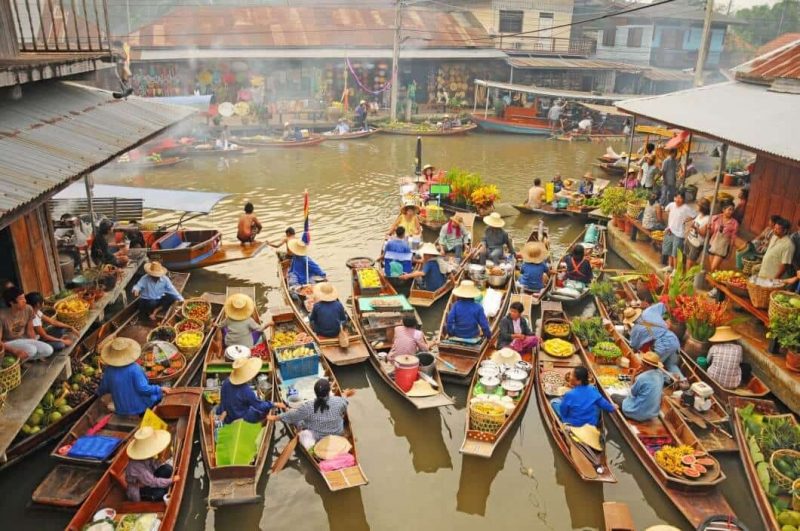Thailand, traditionally a strong tourism market in Southeast Asia, is currently experiencing a noticeable dip in tourist numbers during 2025. Projections suggest a revenue decrease of about 5%, with approximately 3 million fewer tourists visiting compared to previous years. This decline, the most significant in recent memory, has understandably caused concern among government officials and those working in the industry.
After all, Thailand’s tourism contributed $42.7 billion to the economy last year and remains a vital part of the nation’s financial health. With rising labor costs, increased energy prices, and a relatively short average tourist stay (under seven days), Thailand has announced an ambitious urgent plan to try and reverse this downward trend. This report looks into the main actions being taken, like tourist vouchers, complimentary domestic flights, and campaigns focused on the off-season, all with the goal of boosting the industry and spreading the benefits of tourism beyond the usual popular destinations.
A Troubling Tourism Decline
Thailand’s tourism sector is dealing with what is possibly its most difficult period after the post-pandemic recovery. The number of visitors is estimated to be down by 3 million in 2025. The subsequent reduction in tourism revenue, nearly 5%, is having a direct effect on hotels, local businesses, and the overall economy. The average length of stay, which is now less than seven days, makes the financial issues worse, especially because operating costs like salaries and energy are still going up. The government understands that it’s important to deal with this decline quickly, as tourism is a significant part of Thailand’s GDP and provides jobs for many people.
Tourist Vouchers to Boost Local Economies
The main part of Thailand’s tourism strategy is the introduction of unique tourist vouchers for visitors from abroad. These vouchers can be used at hotels, shops, and restaurants, and they are meant to encourage spending all over the country, not just in well-known places like Bangkok and Phuket. The government wants to help emerging vacation areas by distributing the economic advantages of tourism to less well-known regions, encouraging balanced growth. The idea is to get tourists to discover Thailand’s lesser-known treasures, from small rural towns to smaller cities, while also helping local companies and communities.
Free Domestic Flights to Encourage Exploration
To improve access to Thailand’s different regions, the government is planning to provide up to two free domestic flights to tourists from abroad. The goal of this project is to promote visits to smaller, less-visited locations, encouraging tourists to go beyond the typical popular attractions. The plan seeks to increase visitors’ connection to the country and lengthen their average stay by showcasing Thailand’s extensive cultural legacy, beautiful natural scenery, and distinctive locations, such as the historic temples of Ayutthaya and the tranquil beaches of Krabi. Better domestic connectivity is anticipated to boost tourism revenue in underrepresented regions, resulting in a more inclusive tourism model.
Click here to preview your posts with PRO themes ››
Off-Season Campaigns to Attract Diverse Travelers
Thailand is launching focused campaigns for the off-season, which runs from May to October 2026, to combat the seasonal nature of tourism. These campaigns will provide special deals to draw tourists during the quieter months, with a strong emphasis on business travelers. The government is aiming to diversify its tourism offerings and guarantee a consistent stream of income year-round by establishing Thailand as a hub for international conferences, business events, and trade exhibitions. Reduced prices, special packages, and targeted marketing initiatives will highlight the value and attraction of visiting during the off-season, further supporting local economies.

Economic and Strategic Importance
Tourism is a foundation of Thailand’s economy, adding $42.7 billion in 2024 and providing jobs for many. The present decline, brought on by uncertainties in the global economy and competition in the area, puts the lives of small company owners, restaurant owners, and hoteliers in danger. The goal of the emergency plan is to promote sustainable and inclusive tourism through economic distribution. The goal is to spread economic benefits more fairly throughout the nation. Thailand intends to solidify its status as a top global travel destination by encouraging travel to less well-known areas and promoting year-round tourism.
Challenges and Opportunities
Though ambitious, some roadblocks remain in this emergency plan. Thailand needs constant innovation to stay ahead of rising costs and competition from regional players like Vietnam and Malaysia. Keeping tourists happy and safe, especially given recent concerns, is key for a lasting rebound. Still, the new vouchers and free flights, plus off-season deals, give Thailand a real chance to reshape its tourism scene, making it stronger and more varied.


